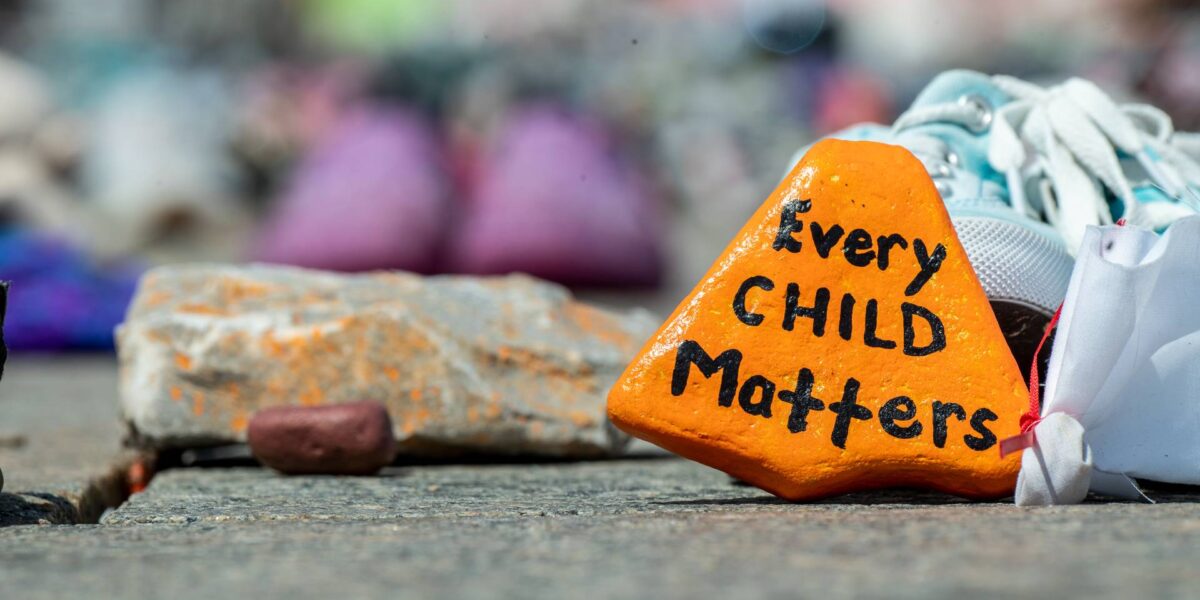June marks National Indigenous History Month in Canada. It’s a sobering time for Canadians to educate themselves about the country’s ongoing genocide of Indigenous people and the legacy of residential schools.
It’s also a time to reflect on the uplifting stories of Indigenous people that transcend generations.
But the question remains: Can Canada really honour National Indigenous History Month without adequately addressing the calls to action from the Truth and Reconciliation Commission (TRC)?
Calls to Action on pace to be completed in 2065
Eight years ago, in 2015, the TRC published a series of calls to action. But of the 94, the Canadian government has completed an average of just two per year.
The Yellowhead Institute released a report in December 2022 that concluded only 13 calls to action have been completed.
When it comes to the more lofty calls that focus on revitalizing health care, education, child welfare, and justice —- Canada is simply failing Indigenous people.
At its current pace, the report projected all 94 calls won’t be completed until 2065 — 50 years after they were published.
As I wrote in early 2023, calls to action are divided into two categories — and it’s clear which one the federal government favours.
Forty-two of the 94 are recognized as “Legacy Calls to Action.” These calls seek to bridge the gap for Indigenous people when it comes to fundamental human rights like child welfare, justice, health, education, culture and language.
The legacy calls cover injustices still faced by Indigenous people in Canada, while the remaining calls, known as “Reconciliation Calls to Action,” relate to diversity, inclusion and educational goals.
Reconciliation calls focus on a range of subjects, from the United Nations Declaration on the Rights of Indigenous Peoples, a National Council for Reconciliation, missing children and burial information, and a National Centre for Truth and Reconciliation.
READ MORE: Red Dress Alert motion receives unanimous support from MPs
These calls would also provide further education to Canadians about reconciliation through youth programs, museums and archives, sports, media, business, and for newcomers to Canada.
The two calls completed in 2022 — #67 and #70 — centre around Canada’s museums and archives.
Call #67 saw the federal government provide funds to the Canadian Museums Association to undertake a national review of museum policies in collaboration with Indigenous peoples.
The multi-year project, which began in 2019, received nearly $681,000 to make recommendations while also determining the level of compliance with the United Nations Declaration on the Rights of Indigenous Peoples (UNDRIP).
The Canadian Museum Associations published their findings in “Moved to Action: Report and Standards on Activating UNDRIP in Canadian Museums” in September 2022.
Call #70 was quite similar, except it was directed at the Canadian Association of Archivists to conduct a national review of archival policies and best practices.
According to the federal government’s website, the review’s task force also sought to identify potential barriers to reconciliatory efforts between the Canadian archival community and Indigenous record keepers.
The Steering Committee on Canada’s Archives released their report on reconciliation frameworks in February 2022.
But as the Yellowhead Institute wrote in their report, the two completed calls are merely reports “outlining the significant work that still needs to be done to address long-standing institutional racism.”
Health disparities in Indigenous communities
A June 1 statement from the Canada Medical Association (CMA) pointed out that health disparities facing Indigenous peoples “are rooted in a legacy of colonization and ongoing racism in Canada.”
According to the CMA, Indigenous peoples are more likely than other Canadians to experience persistent poverty, food insecurity, and barriers to housing and education — which contribute to chronic illness and other serious health issues.
And that’s not all. Indigenous peoples in Canada are forced to rely on often inadequate health-care services, especially for those in remote communities. The people who do receive care, the CMA noted, are frequently subjected to anti-Indigenous racism, a lack of cultural safety, and poor understanding of Indigenous health and healing models.
Acknowledging Canada’s ongoing genocide of Indigenous Peoples
On June 2, Native Women’s Association of Canada (NWAC) president Carol McBride issued a statement encouraging Indigenous and non-Indigenous Peoples to explore the Seven Grandfather Teachings —- wisdom, love, respect, bravery, honesty, humility and truth.
“It is crucial that non-Indigenous members of our community make sustained efforts to learn about Indigenous histories, cultures, and protocols,” McBride said.
McBride credited the advocacy of First Nations, Inuit, and Métis communities in helping to create the first official National Indigenous History Month in 2009.
“June is about appreciating Indigenous history, diversity, and experiences with our unique cultural perspectives, as self-determining peoples,” she added.
2023 marks the first National Indigenous History Month since the House of Commons passed a motion, introduced by NDP MP Leah Gazan, with unanimous consent to recognize the history of Canada’s residential schools as genocide.
To help non-Indigenous people better understand the ongoing genocide being perpetuated against Indigenous peoples in Canada, NWAC released a graphic booklet on Wednesday to help explain how the National Inquiry into Missing and Murdered Indigenous Women and Girls came to the “inescapable conclusion of genocide.”
The booklet, Genocide in Canada: A Legal Explanation, was created by law professor Fannie Lafontaine and documentary filmmaker Chloloula.
NWAC is calling on education ministers across the country to incorporate the booklet’s contents into high school curriculums.
In a June 19 statement, Lafontaine noted that some recognized genocides like the Holocaust took place “over specific periods of time and were characterized by mass killings.”
Colonial genocide, on the other hand, “is a slow-moving process.”
“The policies of colonial destruction of Indigenous peoples took place insidiously and over decades The acts of violence and intent to destroy are structural, systemic and cut across multiple administrations and political leaders,” Lafontaine said.



